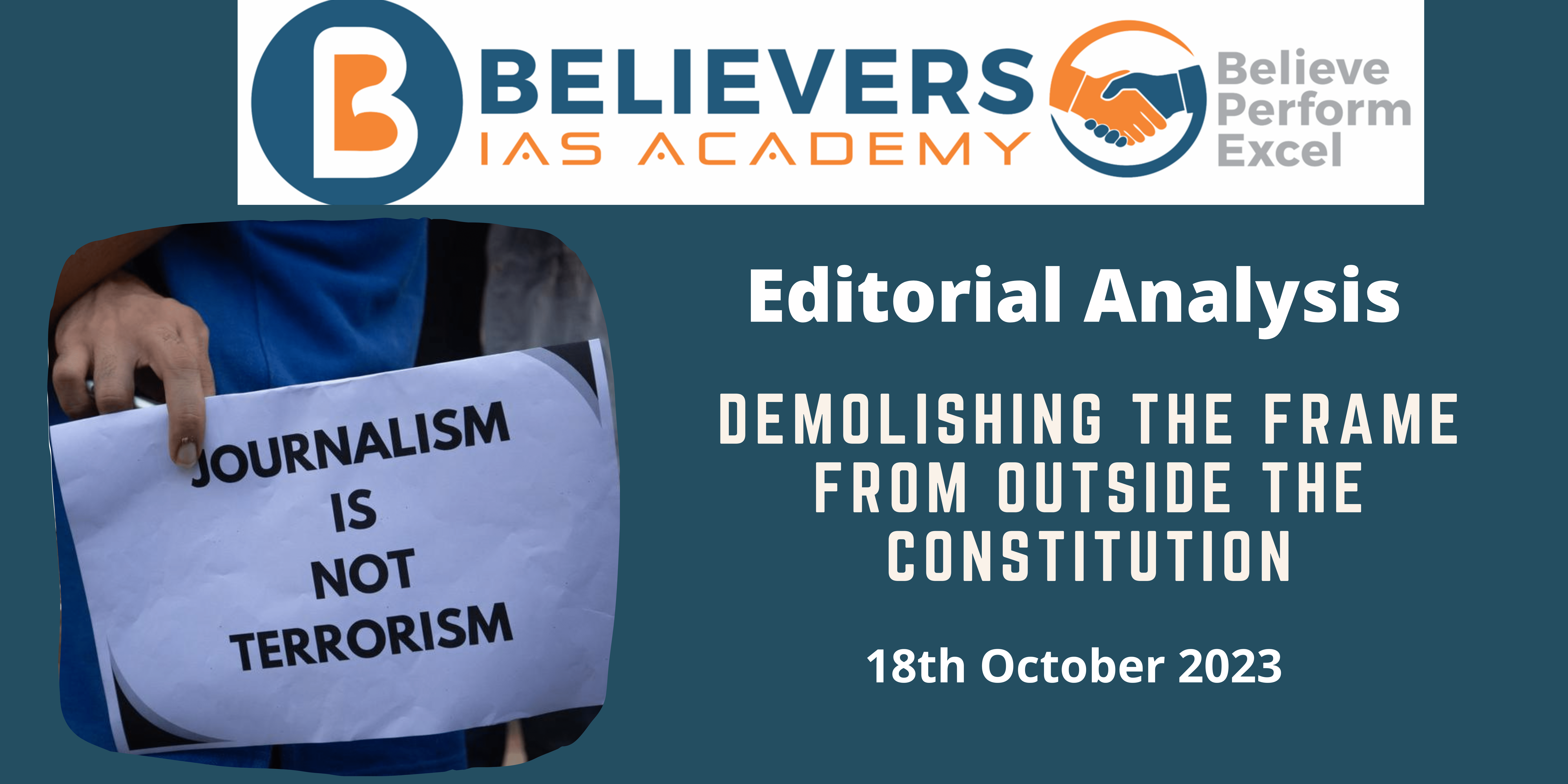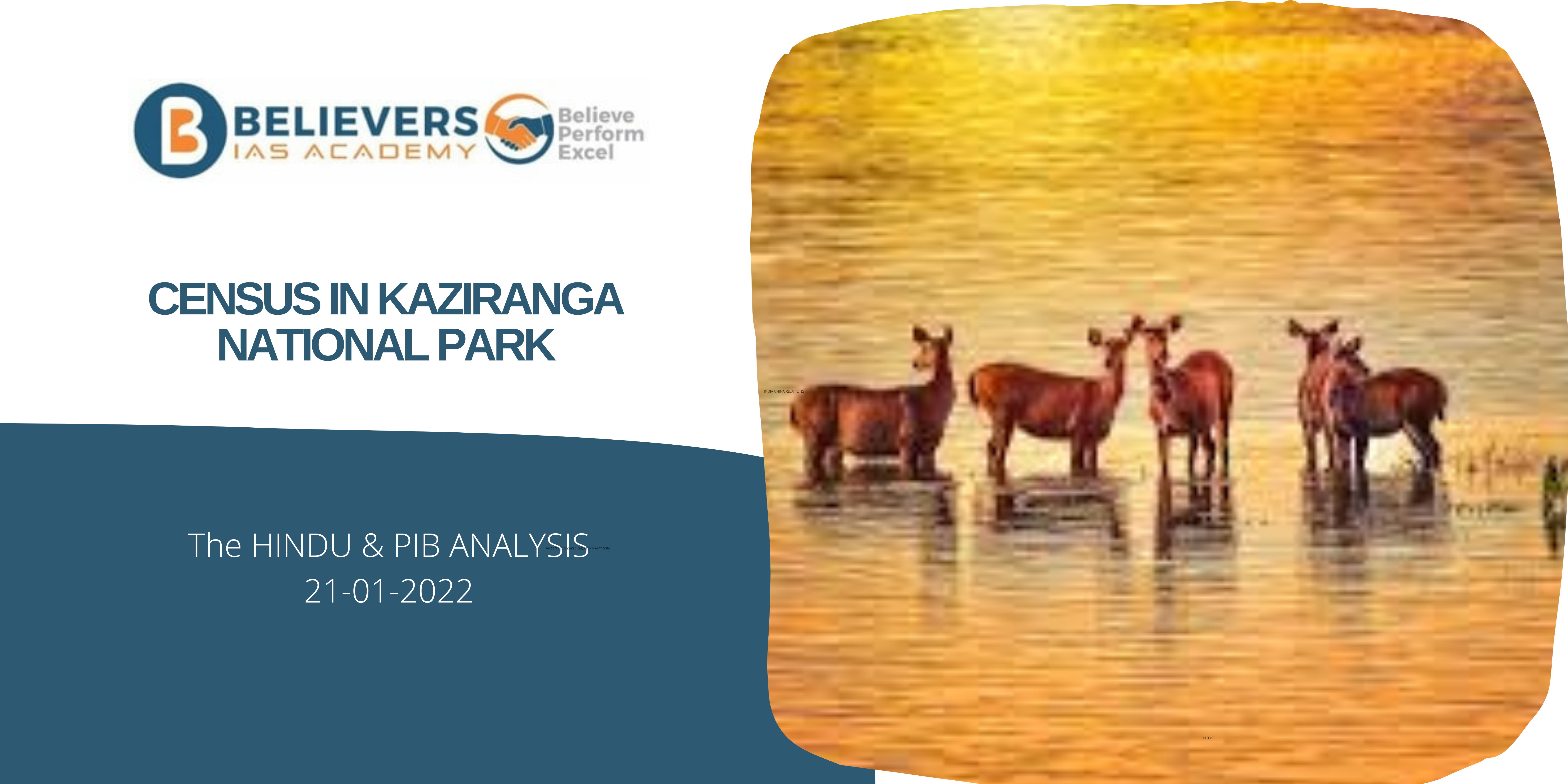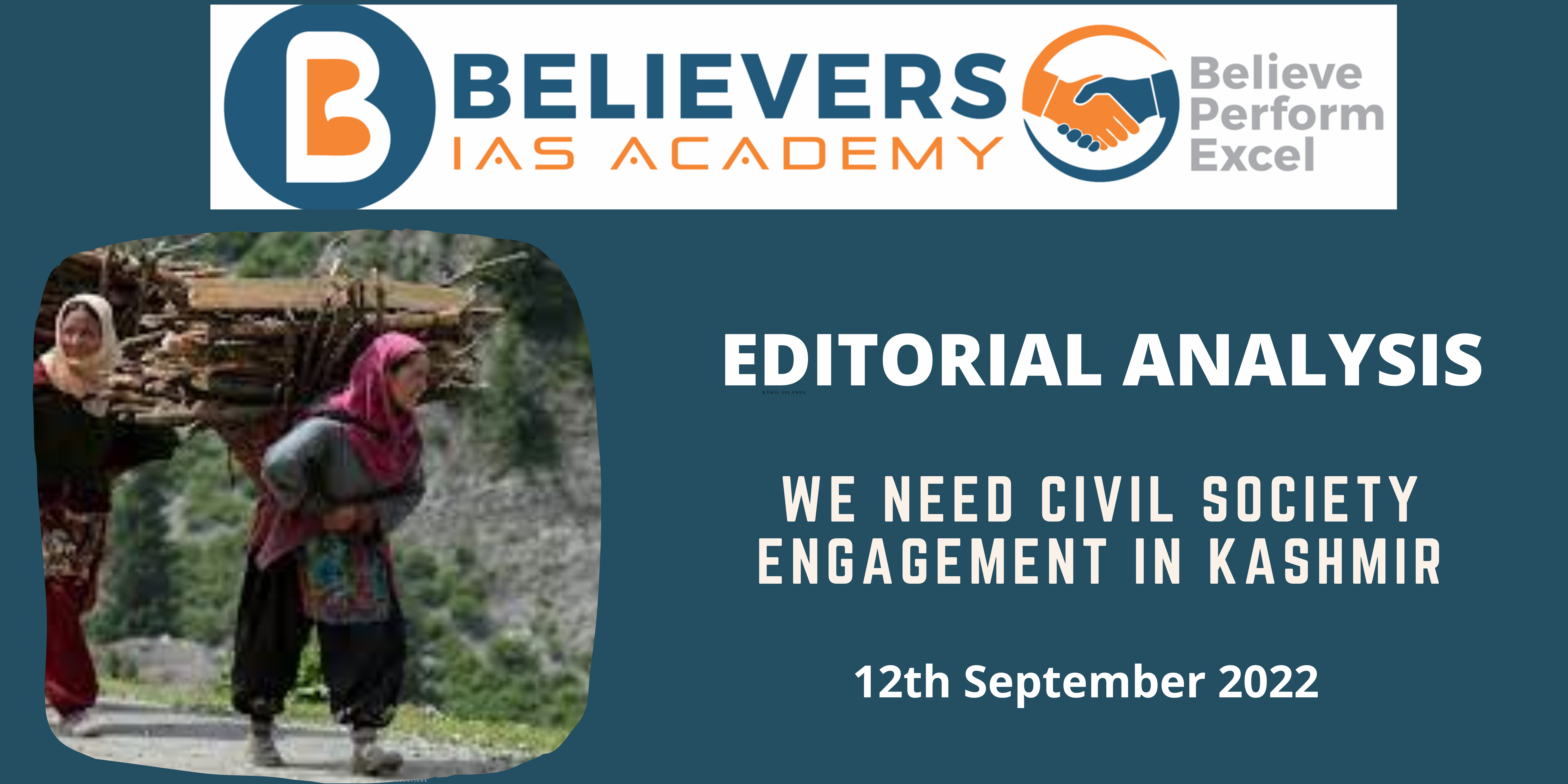Demolishing the frame from outside the Constitution
Context:
The recent events in India involving the Delhi Police’s extensive raids on the news portal NewsClick, leading to the arrest of its founder and Editor-in-Chief, Prabir Purkayastha, under the Unlawful Activities (Prevention) Act, go far beyond the often-mentioned “chilling effect.”
Relevance:
GS – 03 (Role of Media & Social Networking Sites in Internal Security Challenges, Role of External State & Non-State Actors)
Prelims:
- Major provisions of UAPA, UAPA Tribunal.
Mains Question:
Examine the implications of recent developments in India, including the arrest of journalists under the Unlawful Activities (Prevention) Act, in the context of freedom of speech and expression, and their impact on the democratic framework. (250 words)
Dimensions of the Article:
- Erosion of Fundamental Rights
- Judicial Oversight and Protection of Democracy
- Court’s Role in Democracy
- Protecting Democratic Processes
- Indian Context
- Text vs. Reality
- The Constitutional Part of Democracy
- The Court’s Response
Erosion of Fundamental Rights:
- The use of the Unlawful Activities (Prevention) Act, originally intended for counter-terrorism, against journalists signifies a significant threat to the democratic fabric of the nation.
- These events must be considered alongside other worrying trends, such as the growing challenges faced by religious minorities and opaque political financing through electoral bonds.
Judicial Oversight and Protection of Democracy:
- In response to these developments, the media fraternity has urged the Chief Justice of India, D.Y. Chandrachud, to take notice of the matter. This move reflects the hope that the Supreme Court, which previously established the “basic structure doctrine” to protect fundamental rights from majoritarianism, will recognize the line that has been crossed.
- It is crucial for the Court to extend its role beyond textual interpretations and confront the challenge posed to the Constitution’s identity as a democratic and liberal document.
Court’s Role in Democracy:
- The role of the judiciary in a democratic system has long been a subject of debate. The judiciary, as an unelected body within an elected system, often faces questions about its legitimacy when striking down laws made by elected representatives.
- While Parliament represents the people’s will, courts play a vital role in safeguarding the democratic process.
Protecting Democratic Processes:
- To address the legitimacy question, courts like the Supreme Court of India can focus on safeguarding the democratic process. Ensuring the integrity of the democratic process is essential because any flaw in this process raises doubts about the legitimacy of the elected body.
- If elections are conducted unfairly or if certain groups are excluded from effective representation, the very principle of equality is undermined. Courts, being independent from the electoral process, have a responsibility to protect the integrity of this process.
Indian Context:
- In the Indian context, this discussion may seem academic due to the Supreme Court’s powers, including the authority to strike down laws and amendments.
- It has even imposed restrictions on Parliament through the basic structure doctrine. Protecting the democratic process remains at the core of the Court’s duties.
Text vs. Reality:
- However, preserving the democratic process cannot be achieved through textual interpretation alone. The Constitution may retain its text, but its essence can be undermined from outside. It doesn’t necessarily require changes to the Constitution itself.
- When terrorism laws are used against journalists, the fundamental right to freedom of speech and expression is technically intact in the Constitution but is harmed in practice. When hate speeches against minorities go unchecked, secularism remains in words but not in reality. Opaque electoral funding diminishes the essence of democracy.
The Constitutional Part of Democracy:
- As per Richard Dworkin, a legal and political scholar, democracy goes beyond majority decision-making. Decisions should be made under democratic conditions that treat all individuals with equal respect and concern.
- These conditions include freedom of speech, freedom of association, and various rights that prevent majoritarianism from running amok.
The Court’s Response:
- The Indian Constitution, in many ways, has established these conditions, which form the basic structure of the document. Protecting these conditions is crucial. While invoking the basic structure doctrine in every circumstance may not be feasible, the Court possesses sufficient authority to address this broader trend.
- Ignoring profound violations of democratic conditions outside the Constitution and laws would weaken both the Constitution and the Court’s identity.
Conclusion:
The recent events in India, including the arrests of journalists under the Unlawful Activities (Prevention) Act, underscore the threats to freedom of speech and expression and democracy itself. It is essential for the judiciary to move beyond textual interpretations and protect the democratic process from external subversion. The Court’s response to this challenge will shape not only the fate of the people but also the institution itself.




